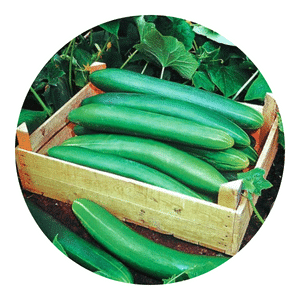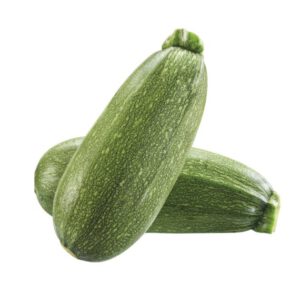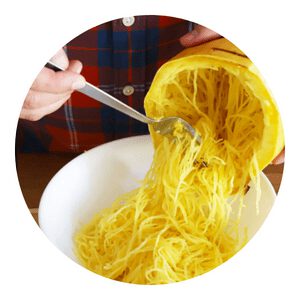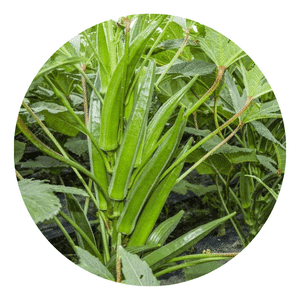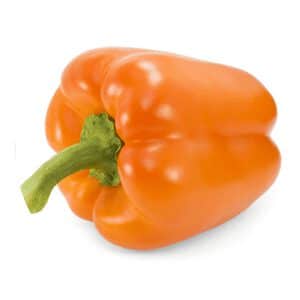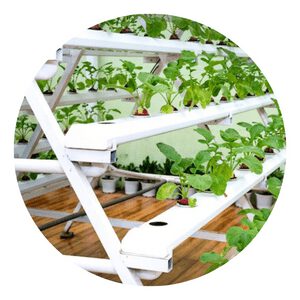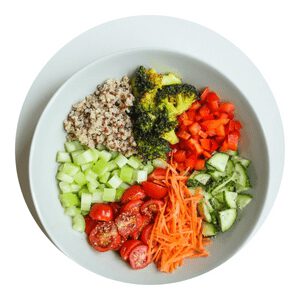Grow Summer Vaegetables
With summer just around the corner, many of us are looking for ways to make the most of the warmer weather.
Growing our own vegetables is a great way to get outside and enjoy the sunshine while also providing our families with fresh, nutritious produce.
Growing summer vegetables doesn’t have to be complicated – all you need is a little bit of knowledge, some basic supplies, and a few tips and tricks.

Summer Grow Menu
Growing Summer Vegetables
Summer is a wonderful time for growing organic vegetables.
With the right tips and techniques, anyone can enjoy a harvest of delicious, healthful fruits and vegetables in their garden.
Whether you’re an experienced gardener or just starting out, there are plenty of ways to grow summer vegetables organically.
Organic gardening means avoiding chemical fertilizers and pesticides, instead relying on natural methods to feed the soil and protect plants from pests.
Gardeners will typically use composting, crop rotation, mulching and companion planting to ensure a healthy harvest without any harmful chemicals. planting summer crops at the right time is also important for successful harvests; timing depends on your region’s climate zone as well as individual hardiness zones within it.
For example, warm-weather crops such as tomatoes should be planted after all danger of frost has passed.
Tomato
Tomatoes are a staple in summertime gardens across the world.
They’re easy to grow and require only basic care, making them an ideal choice for those interested in growing their own vegetables organically.
With a few simple steps, you can have delicious homegrown tomatoes that are free from synthetic fertilizers and pesticides.
When selecting tomato varieties, choose ones that will do well in your climate and soil type.
Look for tomato plants that are disease-resistant, as this will help keep your crop healthy throughout the season.
Planting organic heirloom varieties may also add flavor and interest to your dishes.
For added convenience, consider investing in self-watering containers or automatic irrigation systems so you don’t need to spend time watering every day.
Ensure they get plenty of sunshine each day too – aim for at least 6 hours of sunlight per day throughout the summer months!
Cucumber
Cucumbers are a favorite summer vegetable that grows best during the warm months of the year.
When it comes to growing cucumbers, organic is always the way to go.
Organic gardening practices ensure that your plants will be healthy and pest-free without having to resort to chemical pesticides or fertilizers.
When planting cucumbers, it’s important to make sure you have enough space for them to spread out and get plenty of sunlight throughout the day.
Planting cucumber seeds in raised beds can also help keep their roots cool and moist in warm weather.
Once they start sprouting, be sure to monitor water levels closely as too much moisture can cause mildew or other fungal infections on your plants.
Adding mulch around your cucumber plants can also help retain moisture while keeping weeds away from them as they mature.
Zucchini
Organic summer vegetables, such as zucchini, can be an easy and rewarding addition to your garden.
Zucchini is a fast-growing crop that has many uses in the kitchen.
With its mild flavor and versatility, it’s no wonder why this veggie is so popular!
Growing zucchini organically is a great way to enjoy healthy produce without having to worry about harmful chemicals.
When planting your zucchini seeds, make sure that you prepare the soil well by tilling it deeply and adding some organic compost or fertilizer.
You’ll also want to provide plenty of water and sunlight for optimal growth.
Additionally, keep an eye out for pests or diseases that may affect your crop – thankfully there are several organic solutions available if needed!
Once harvest time arrives you’ll have plenty of delicious zucchini to enjoy!
Nature's bounty, shows what can be done Organic in the soil, singing the sun Sow your seeds and wait for a spark Grow Summer Veggies, Nature's Mark Make it sustainable Earth you'll defend Take pride with every veggie that you tend Give thanks to the natural order of things Grow Summer Veggies Organic is a must; a Divine Ring!
Chappy The Gardener
Squash
Squash is one of the most popular vegetables among home gardeners.
Not only are they easy to grow, but they’re also packed with essential vitamins and minerals.
Growing squash organically can help you enjoy a plentiful harvest that is free from harmful pesticides and herbicides.
Organic gardening offers a number of benefits, including increased soil fertility and improved pest control.
When growing squash organically, start by selecting your favorite variety.
Summer squashes such as zucchini and yellow crookneck are some of the most popular choices for home gardens.
Planting in well-drained soil with plenty of organic matter will ensure optimal growth throughout the summer months.
Provide your plants with adequate water during periods of drought, but be careful not to overwater them as this can cause root rot issues.
Okra
Okra is a popular vegetable that is easy to grow during the summer months. It has a mild, nutty flavor and can be used in a variety of dishes.
When grown organically, okra is especially nutrient-dense and provides numerous health benefits.
This warm-season crop is relatively easy to grow with minimal effort.
Plant okra seeds directly into the soil after all danger of frost has passed and temperatures are consistently above 75 degrees Fahrenheit.
For best results, choose an area with full sun exposure and well-draining soil.
Okra plants should be spaced about 12 inches apart for proper air circulation, which will help prevent disease problems.
Keep the soil moist throughout the growing season for optimal yields; if you experience drought conditions, provide supplemental irrigation.
Sweet Potato
When it comes to growing summer vegetables organically, sweet potatoes should be the first on your list.
Not only are they a nutritious and delicious addition to any meal, but they’re also surprisingly easy to grow.
Sweet potatoes are a warm weather crop that thrive in the heat of summer, so if you want a successful harvest you’ll need plenty of sunny days and good soil drainage.
You can buy certified organic sweet potato slips from garden stores or online sources; these are cuttings taken from mature plants that have been grown without any synthetic fertilizers or pesticides and will produce the same type of root vegetable as the parent plant.
Plant these slips about four inches deep in rich organic matter for best results – add compost if necessary to enhance nutrition in the soil.
Water regularly during hot summer months and consider adding mulch around your plants for added weed control and additional moisture retention.
Eggplant
Eggplant, an essential summer vegetable, is a great addition to any garden.
Its unique flavor and texture make it a versatile ingredient in many dishes.
Growing eggplant organically can be quite simple if one is aware of the basics when it comes to planting and cultivation.
Organic gardening requires that a few key steps are taken prior to planting: soil needs to be amended with organic matter like compost or manure; pH levels need to be tested and adjusted accordingly; correct spacing between plants should be observed for optimal growth; and companion plants should also be considered for pest control and pollination purposes.
To ensure healthy growth throughout the season, regular watering, fertilizing (preferably with an organic fertilizer), weeding, mulching, and pruning should all become part of your routine as a gardener.
Bell Pepper
Organically grown bell peppers are a great way to add some delicious flavor to your summer vegetable dishes.
These brightly colored members of the nightshade family are packed with nutrition, and can be enjoyed raw or cooked in an array of recipes.
Growing them organically is relatively easy and the results are rewarding.
Bell peppers come in many varieties, ranging from sweet to spicy.
They have thick fleshy walls and hollow centers that contain small white membrane lined seeds.
Planting bell pepper starts indoors before planting out into the garden works best for most climates.
You can also purchase seedlings from your local nursery if you prefer not to start them from seed at home.
Once transplanted outdoors, bell peppers need full sun for about 6-8 hours each day and ample water during dry spells – especially when fruits begin forming on the plant.
Types of Soil
When it comes to growing vegetables organically in the summer season, there is one key factor that should not be overlooked: soil.
Selecting the right type of soil can make all the difference when it comes to raising healthy, nutrient-rich vegetables in your garden or backyard.
There are many different types of soil and each variety has its own advantages and disadvantages for optimal vegetable growth.
The three main categories of soil are sand, silt, and clay.
Sandy soils tend to be dryer than other types, making them ideal for drought-resistant plants that require less water.
Silt soils have a high percentage of organic matter and are ideal for moisture retention which makes them well-suited for nutrient-dense veggies such as tomatoes and squash.
Site Preparation
Preparing the right site for your organic summer vegetable garden is essential for a successful harvest.
Site preparation involves more than just digging up some soil and planting seeds – it requires careful planning to ensure that you have chosen the optimal location and have prepared the soil properly.
When selecting a site, consider factors such as drainage, sunlight, wind protection, proximity to water sources, and accessibility.
The ideal spot should receive four to six hours of sunlight daily; well-drained soil is important since wet soil can damage your crops.
Wind protection will help protect delicate seedlings from strong gusts of wind that can dry out or blow away plants.
Make sure you are close enough to a source of water so it’s easy to keep plants hydrated during hot days; adding mulch around each plant will also help conserve moisture in the ground.
Organic Fertilizers
Organic fertilizers are an essential part of growing summer vegetables.
Not only do they provide essential nutrients to the plants, but they also promote healthy soil by helping to reduce soil erosion and improve water retention.
In addition, organic fertilizers can help boost yields while avoiding the use of chemical pesticides and other synthetic ingredients that can be harmful to the environment.
When selecting an organic fertilizer for your garden or farm, it is important to consider the specific needs of your plants as well as the local climate and soil type.
Organic fertilizers come in a variety of forms such as composted manure, green manures, plant-based meals and liquid extracts from fish or seaweeds.
Depending on what you’re growing, any one (or combination) of these could be a great option for supplementing your summer vegetable garden.
Pest Control
Pest control is an important part of growing organic vegetables during the summer months. If pests are not managed properly, it can lead to crop loss and reduce yield quality.
Protecting your garden from unwanted pests is essential to ensure a healthy harvest at the end of the season.
Organic pest control helps keep gardens free of harmful chemicals that can be toxic to plants, animals and humans alike.
Simple strategies such as companion planting, mulching and hand-picking can be used to naturally repel damaging insects without adversely affecting beneficial organisms in your garden.
Other natural solutions such as diatomaceous earth or neem oil will help manage pest populations while still being safe for you and your family.
It’s also important to check for signs of damage regularly so that any infestations can be addressed quickly before they become out of control.
Harvesting & Storage
Harvesting and Storage is the key to having a successful yield of summer vegetables.
Knowing when to harvest your vegetables, how to store them properly, and what kind of storage solutions are best will help ensure you get the most out of your organic garden.
As temperatures heat up in the summer months, you’ll want to make sure you are harvesting your vegetables at their peak flavor and freshness.
First off, it’s important to be familiar with each vegetable’s optimal ripeness for harvesting as each one varies in size, shape and color when ready for picking.
To prolong freshness after harvesting, proper storage is essential.
If you plan on storing produce indoors or outdoors at room temperature, make sure they’re dried off and stored away from direct sunlight.
In conclusion,growing summer vegetables organically is a great way to ensure healthy and delicious produce for your table.
Not only does it help the environment, but there are also many benefits to the home gardener including improved soil quality and variety of vegetables.
Furthermore, knowing where your food comes from is an empowering experience that will bring you closer to your food and give you full control over what goes into growing it.
Lastly, by growing organically you can save yourself money while having fun in the process.
Click To Grow
Helps Us Grow – Share If You Like






